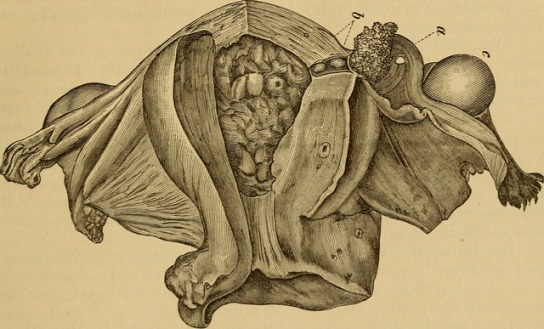Uterine polyp: All about benign tumors of uterus
The uterine polyp or endometrial polyp is an abnormal growth of cells in the endometrium, the inner lining of the uterus. Women who have reached age 40 are more vulnerable to having gynecological polyps.
They are not cysts or fibroids, the vast majority of uterine polyps being benign, although between 0.5-1% of them can be malignant and cause cancer, usually during menopause. Discover all about tumors of the uterus.
Table of Contents
Uterine polyp causes
Although it is not known for sure its origin, it is known its tendency to grow when estrogen levels are high. There are a number of other factors that may be behind their appearance, such as anovulation or absence of ovulation, luteal insufficiency, chronic uterine inflammation or age itself.
Types of uterine polyps
There are two types of uterine polyps:
Functional uterine polyps: Dependent on female hormones (estrogens and progesterone), they are always benign.
Organic uterine polyps: Without hormonal dependence, they are malignant in 1% of cases.
Uterine polyp symptoms
- The most characteristic symptom of the uterine polyp is abnormal bleeding (heavy menstruation or hypermenorrhea, although it is a benign tumor that can be asymptomatic when it is very small).
- Bleeding between menstruations.
- Bleeding after having sex.
- Pain may occur in some cases.
- Anemia from blood loss.
- The difficulty in getting a natural pregnancy can reveal its presence.
Uterine polyp treatment
Once detected, it is not always necessary to remove them. In most cases, it is sufficient to monitor them periodically through tests determined by the gynecologist.
Hysteroscopy can be used for its treatment, a diagnostic test that also allows the excision of the same. When polyps are large or numerous, surgical hysteroscopy can be used.
Do polyps produce infertility?
The answer is that yes, polyps can cause infertility or sterility, making pregnancy difficult and increasing the risk of miscarriage, although this should be determined by the doctor on a case-by-case basis. Polyps can hinder the way of the sperms up to reaching the ovum and, on the other hand, make it difficult to implant the embryo into the endometrium. It is estimated, according to medical data, more than 15% of women with fertility problems have uterine polyps.
